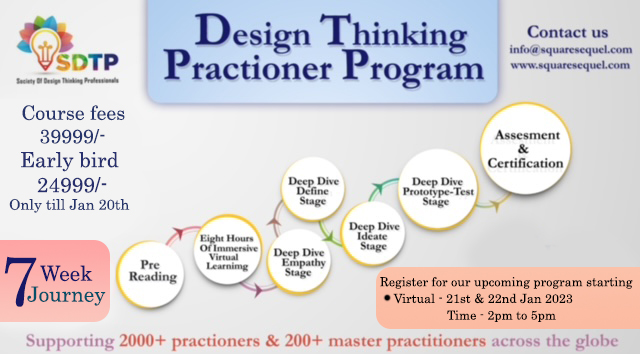“My idea of being a manager was exactly opposite of what it is in reality.”
Jahnvi used to say this whenever she found a stumbling stone in her journey as a new manager. Jahnvi recently started her journey as a first-time manager at a fast-paced tech company. Her new role has definitely brought along excitement for her, however, sometimes she feels in over her head due to the struggles to keep up with her job responsibilities.
At times, she felt isolated and unsure of finding the right words to communicate with her team. She found herself suffering from the “I can do it faster myself” fallacy, and kept on taking more work than delegating to others. When she reflected on what she was doing as a manager, she thought, “This is exactly the opposite of what I visualized as being a manager.”
Jahnvi knew that she couldn’t do it all on her own, and deep down she knew what she had to do, however, the “how” in the role was quite vague to her. So, she decided to do some research on her own.
She found that she had to take care of four things before she ventured into the hidden territories of being an efficient manager.
Four Aspects That Contribute To Becoming A Manager

1. Managing Self
As a new manager, it’s important to set clear expectations and goals for your team and to communicate regularly with them to ensure that everyone is on the same page. It’s also important to provide feedback and support to your team members and to create an environment that fosters collaboration and open communication. Additionally, it’s important to stay organized and prioritize your tasks and be approachable and accessible to your team members. It’s also helpful to keep learning and developing your management skills through training and mentorship.
2. Managing Others
As a new manager, it’s important to establish trust and credibility with your team members. This can be done by being transparent, consistent, and fair in your decision-making and communication. It’s also important to provide clear direction and guidance to your team members and to give them the autonomy and resources they need to succeed. Additionally, it’s important to provide regular feedback and recognition for a job well done and to address performance issues promptly and constructively.
3. Managing Environment
It is important to create a positive and productive work environment for your team. It begins with communicating effectively and clearly with your team, setting clear goals and expectations for your team members, providing them with the resources, and support they need to meet them, and encouraging a positive and supportive work culture by recognizing and rewarding good work and addressing any issues or conflicts that arise in a timely and professional manner, leading by example, and demonstrating the behavior and work ethic that you expect from your team.
4. Managing Activities
It is important for a manager to establish clear expectations and goals for their team. This can be done by setting specific, measurable, achievable, relevant, and time-bound (SMART) objectives for each team member. Additionally, you should create a schedule or plan for your team that outlines the tasks and projects that need to be completed, as well as deadlines for each. It’s also important to regularly check in with your team members to ensure that they are on track and to address any issues or concerns that may arise. Communication is the key to effectively managing activities and team members.
Once she understood these four aspects well, she deep-dived into understanding what it takes to fulfill the responsibilities of her new role. She knew she had to lead and support her team, rather than just tell them what to do. She moved out front trying to understand the best ways to keep herself ahead of the curve. Here is what she learned along the way.
Tips For The First-Time Managers

Becoming the “boss” is a significant career change that comes with a slew of new responsibilities. You’ve now become a part of something over and above yourself.
“Your success is no longer determined by your work, but by the work of the people working with you. Making this transition and learning how to lead well takes time, patience, and practice for first-time managers.”
One common mistake is prioritizing being liked over leading in ways that help your team members grow. We are all affected by the way others perceive us. Everyone wants to be accepted for who they are. As a new boss, you may feel added stress to prove your worth, secure an early victory, or be overly “hands-on” in assisting others in delivering results. However, there are more effective ways to motivate your team to bring their best work to the table.
Here are some tips –
Communicate clearly
Make sure that you are clear and consistent in your communication with your team. Let them know what is expected of them, what their roles and responsibilities are, and how they will be evaluated.
Set goals and expectations
Establish clear and measurable goals for your team, and make sure that everyone understands their role in achieving them. Set expectations for how work should be done, and provide regular feedback on progress.
Delegate effectively
Learn to delegate tasks and responsibilities to your team members, and give them the autonomy to make decisions and solve problems on their own. This will help them grow and develop their skills, and it will also free up your time to focus on more important tasks.
Lead by example
Be a role model for your team and lead by example. Show them how to work hard, be honest, and be respectful of others.
Provide feedback
Provide regular feedback to your team members, both positive and constructive. This will help them understand their strengths and areas for improvement, and it will also help them identify opportunities for growth and development.
Be approachable
Make sure that you are approachable and open to feedback from your team. Encourage them to share their thoughts and ideas, and be willing to listen and consider their suggestions.
Be a good listener
Listen to your team members and understand their perspectives. This will help you build trust and respect with them, and it will also help you make better decisions.
Learn to manage your time effectively
Learn to manage your time effectively and prioritize your tasks. This will help you stay focused and productive, and it will also help you avoid becoming overwhelmed by your responsibilities.
Build a positive team culture
Build a positive team culture and encourage collaboration among team members. This will help to build a sense of community and a shared sense of purpose, and it will also help to create a more engaged and motivated team.
Ask for help
According to Ben Laker, Vijay Pereira, Ashish Malik, and Marcello Mariani’s survey of first-time managers and their direct reports in “What First-Time Managers Can Do to Address Burnout,” 65% of respondents admitted to feeling uncertain or anxious about their role transition. This caused stress and paved the way for burnout.
Here’s how you can deal with it: Request assistance. While it may appear to be a difficult task for a new leader, remember that you do not have to know everything.
Contact trusted peers, mentors, or your own manager. Don’t let the initial stress of your new job become the chronic stress of burnout. Before it gets to this point, speak up and ask for what you require. This is something you should do not only for yourself but also for your team because working alongside someone who is exhausted can reduce your team’s productivity.
Being a first-time manager can be a challenging but rewarding experience. It requires a combination of leadership, communication, and organizational skills. It is also crucial to manage the budget and resources allocated to the team and to facilitate communication and collaboration within the team. Always seek ways to improve the team’s performance and processes. With the right mindset, skills, and approach, new managers can successfully lead their teams and achieve their goals.
Jahnvi grasped well what she has to do to hold the fort together, however, she still was clueless about how to be the manager her team deserves. Now she is on her journey of discovering the “How” of her role.
To be continued…
https://www.runn.io/blog/the-first-90-days-summary
https://hbr.org/2022/06/5-pieces-of-advice-for-first-time-managers
https://hbr.org/2021/10/being-a-first-time-manager-our-favorite-reads
https://hbr.org/2021/10/being-a-first-time-manager-our-favorite-reads
https://readingraphics.com/book-summary-the-first-90-days/
https://www.dice.com/binaries/large/content/gallery/dice/insights/2015/09/shutterstock_221682364.jpg
Written By: Jimmy Jain
Edited By: Afreen Fatima
Society of Design Thinking Professionals









